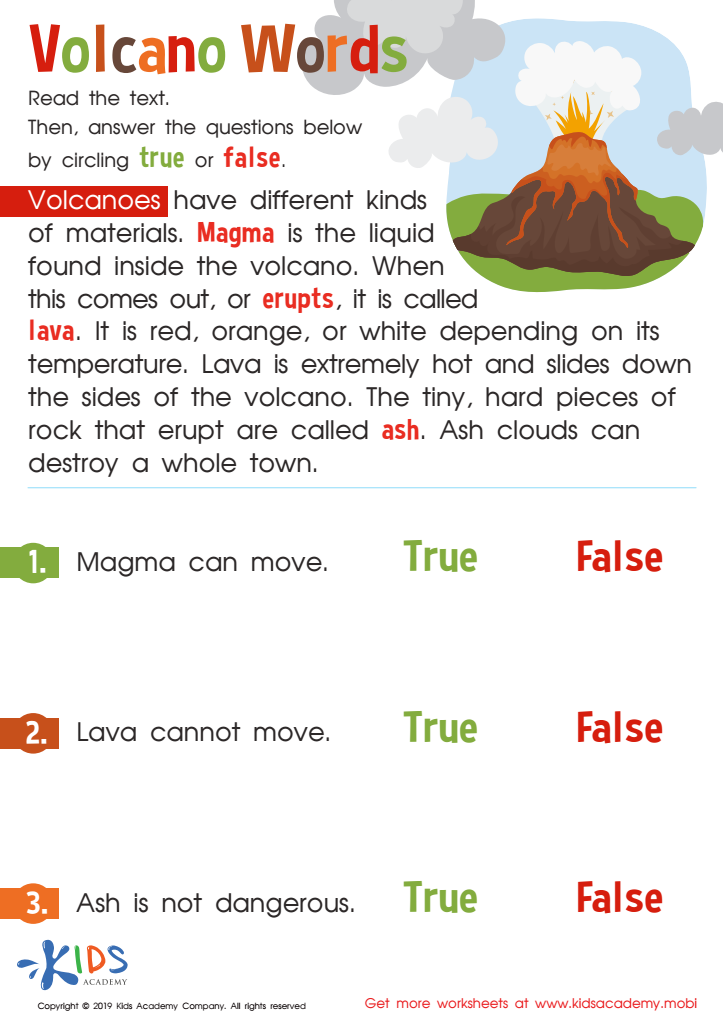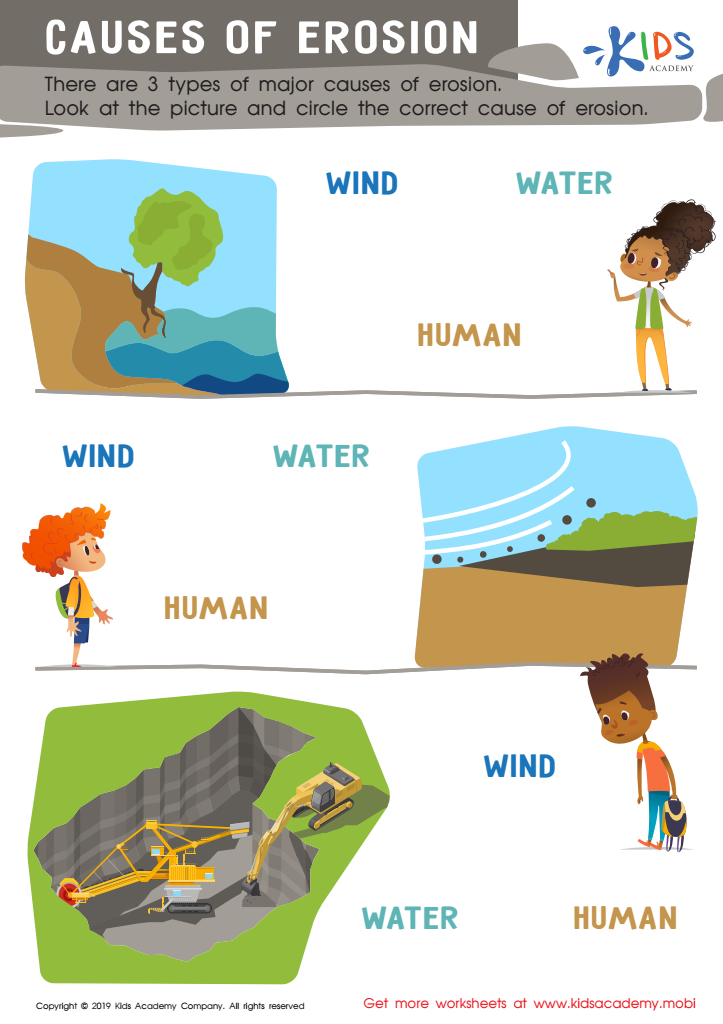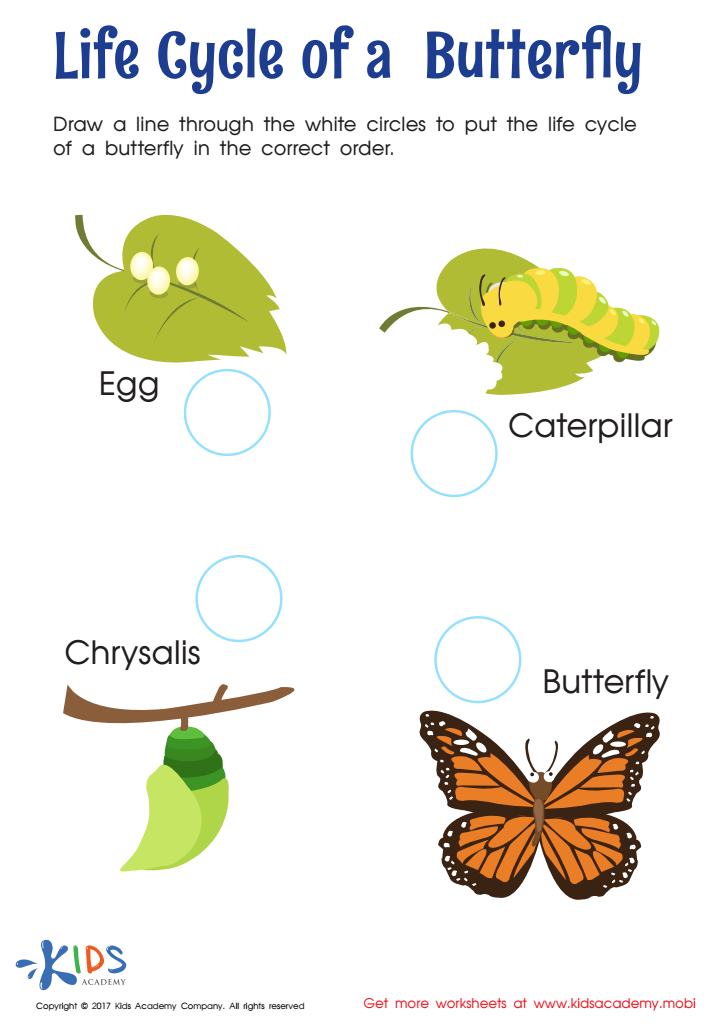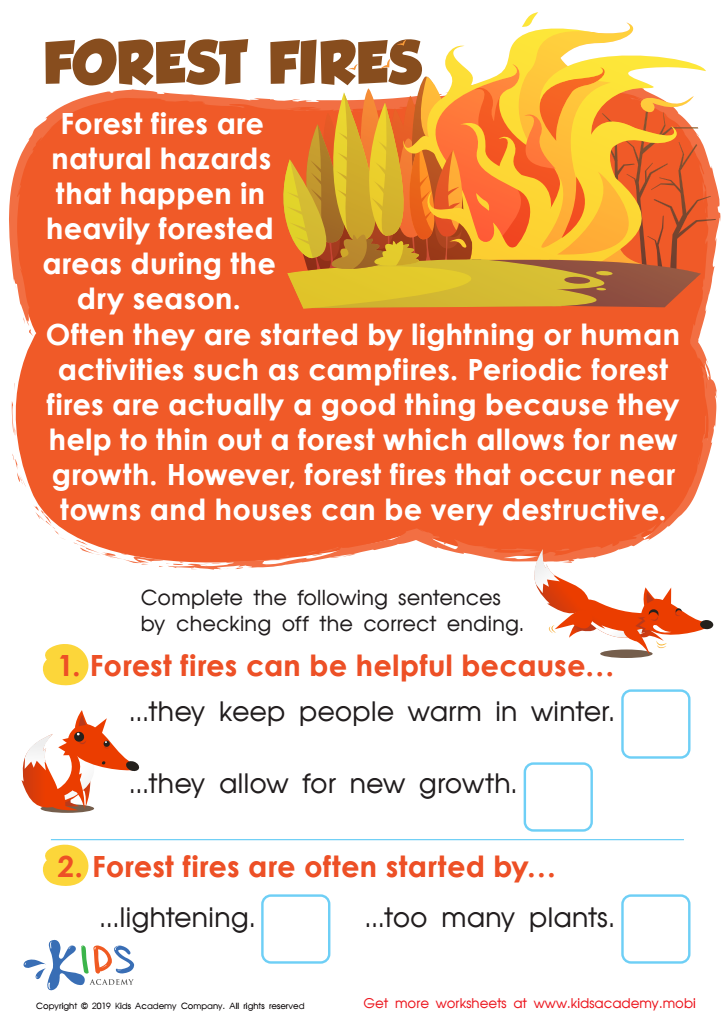Comprehension improvement Science Worksheets for Ages 5-9
4 filtered results
-
From - To
Discover engaging Comprehension Improvement Science Worksheets designed for children ages 5-9! These resources are expertly crafted to enhance critical thinking and reading skills while exploring fascinating scientific concepts. Each worksheet encourages young learners to analyze information, draw conclusions, and deepen their understanding of scientific principles through relatable and age-appropriate topics. Interactive exercises and colorful illustrations make learning enjoyable and effective, fostering a love for science in budding minds. Ideal for classroom use or at-home learning, these worksheets support literacy development and help students become confident thinkers. Start your child's journey towards scientific comprehension today!


Volcano Words Worksheet


Causes of Erosion Worksheet


Life Cycle of Butterfly Worksheet


Forest Fires Worksheet
Comprehension improvement in science for children aged 5-9 is crucial for several reasons. At this developmental stage, children are naturally curious and eager to learn about the world around them. Strengthening their comprehension skills in science can foster critical thinking, allowing them to make connections between their observations and the concepts they learn. This foundation helps them develop a scientific mindset, encouraging inquiry and exploration.
Furthermore, enhancing comprehension in science supports literacy development. As children read and engage with scientific texts, they practice important reading strategies like identifying main ideas, making predictions, and summarizing information. These skills are transferable and can significantly benefit their overall academic performance across subjects.
Parents and teachers play a vital role in this process by providing rich, engaging, and age-appropriate resources that stimulate interest in scientific concepts. Encouraging hands-on experiments or nature explorations enhances learning, making abstract ideas more tangible. Additionally, understanding scientific content builds confidence and motivates children to engage more actively in their education.
Ultimately, nurturing comprehension improvement in science will prepare children not just for future academic success but also for their role as informed, engaged citizens who can responsibly tackle real-world challenges. Investing in their scientific literacy now paves the way for lifelong learning.
 Assign to My Students
Assign to My Students















